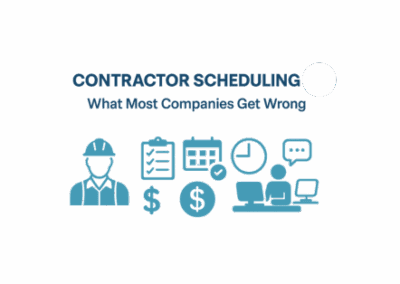Excessive overtime is a dominating factor across industries such as security, hospitality, manufacturing and home care. Workers often see overtime as a bouns. It gives them the opportunity to earn more money. However, it is largely a hindrance to companies in various ways. Seen as a quick fix for companies to finish projects in time, excessive overtime carries more negative effects than positive. Research suggests that regardless of our reasons for working long hours, excessive overtime does not help us. For starters, it doesn’t seem to result in more output. In a study of consultants by Erin Reid, a professor at Boston University’s Questrom School of Business, managers could not tell the difference between employees who actually worked 80 hours a week and those who just pretended to.
Although it is perceived that more work is being done due to longer hours worked, this is not always the case.
Impacts of Excessive Overtime
Decreased Productivity

A recent manufacturing study found that a 10% increase in excessive overtime leads to a 24% decrease in output per hour.
Research has found that employee output falls sharply after a 50-hour work-week, and declines greatly after 55 hours. Someone who puts in 70 hours produces nothing more with those extra 15 hours, according to a study published last year by John Pencavel of Stanford University.
According to data from 18 manufacturing companies in the U.S., when overtime is used, productivity declines. On average, a 10% increase in overtime results in a 2.4% decrease in productivity. The findings show the following reasons for the productivity limitations of prolonged work-weeks:
- Fatigue: employees simply being too physically and mentally tired to perform at their best ability
- As more time is provided or available to complete a task, work rate slows and unproductive time increases
- If employees are working long workweeks simply to be seen “putting in the hours,” it is likely that these hours are less productive
Increased Absenteeism
Excessive overtime can lead to absenteeism as a result of poor health, fatigue, or people simply needing to take time off. Absences often need to be covered by replacement employees, who are often working overtime themselves.
Excessive overtime can also result in morale problems, which can be manifested as low productivity, absenteeism, turnover and labor issues. In Circadian’s Shiftwork Practices 2004, 31% of shift work companies with very high overtime levels had poor morale. Only 13% of companies with normal overtime amounts had poor morale. Morale was also reflected in absenteeism levels.
54% of operations with high overtime also had absenteeism levels above 9%, compared with only 23% of operations with normal levels of overtime.
Increased Turnover Rates
Another adverse effect of excessive overtime through absenteeism is an increase in employee turnover. The lack of work-life balance and fatigue resulting from excessive overtime eventually catches up with some employees. Like absenteeism, companies with high turnover are also likely to have high overtime. Employees must work to make up for vacant positions if demand is to be met.
Turnover as a direct result of working excessive hours is more likely in non-hourly positions, where the employees are not being paid a premium to work the extra hours.
Increased Safety Risk

While long work hours may be standard in some industries, during certain time periods, or in the case of emergency situations, employers are responsible for doing their part in ensuring that employees are kept as safe and healthy as possible. The U.S. Department of Labor’s Occupational Safety and Health Administration (OSHA) recommends that during overtime periods, employers provide additional breaks and lunches. They also advise increasing the number of days worked rather than the number of hours worked to maximize productivity.
Although some companies do have policies regarding overtime safety limits, they are usually only mentioned and rarely enforced. In many cases, employers actively pressure employees to ignore the policies and work through pain and fatigue. When it comes down to choosing between workers and profit, all too often workers suffer.
Increased Health Problems
A considerable body of scientific work has explored the health problems associated with working excessive overtime. Here are some health problems that have been linked to long working hours:
- Lower-back injury in jobs with a lot of manual lifting
- Higher blood pressure among white-collar workers
- Increased mental health issues
A study by Cornell University shows that approximately 10% of employees who work 50 to 60 hours per week report severe work-family conflicts. This number jumps to 30% for those who work more than 60 hours. The divorce rate also increases as weekly hours increase. These factors contribute in turn to mental health and alcohol problems.
A Canadian study showed that workers who increased their work hours from 40 hours or less per week to over 40 hours per week experienced an increase in tobacco and alcohol consumption, an unhealthy weight increase among men, and an increase in depression among women. These health problems contribute to the indirect costs of allowing excessive overtime to occur. Health care costs, absenteeism and turnover will increase, while productivity will decrease.
In terms of mental health, working excessively causes your mental health to dwindle down. People who work more than 40 hours a week were associated with having an increased chance of experiencing depression and anxiety as opposed to those who did not work excess overtime.
Video: How to Eliminate Excessive Overtime
Although employees welcome overtime whether it be longer days or working on weekends, based on the studies and research carried out, it isn’t the most effective of methods for the companies themselves. With the implementation of better scheduling methods, companies can avoid these various issues from occurring, all while maintaining productivity levels and profits.




